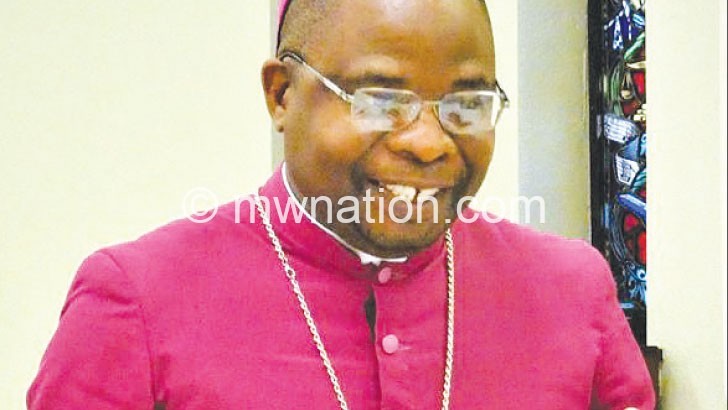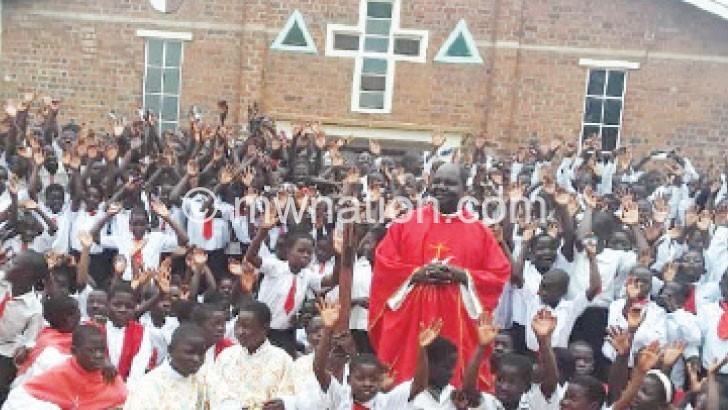Is God the source of death prophesies?
 Nigerian prophet TB Joshua has been in the news over his prophecy of the death of the country’s former president Bingu wa Mutharika. In light of the prophecy and its alleged fulfilment in Mutharika’s death, YOKONIYA CHILANGA wonders whether God is the source of all prophecies.
Nigerian prophet TB Joshua has been in the news over his prophecy of the death of the country’s former president Bingu wa Mutharika. In light of the prophecy and its alleged fulfilment in Mutharika’s death, YOKONIYA CHILANGA wonders whether God is the source of all prophecies.
On February 5, 2012, renowned Nigerian prophet TB Joshua of The Synagogue Church of all Nations (SCOAN) prophesised the death of an African leader.
Said Joshua: “I am seeing a head of state. He is very old. I am seeing a sudden death in two months. It could be sickness being in the body for a long time. God showed me the country… but I am here not to say anything like that.”
On April 1, Joshua was at it again: “What I was saying is very close now…Whether you like it or not, this is what I have seen. Pray for a leader…”
On April 5, an old African president, Bingu wa Mutharika of Malawi, suddenly died of a heart attack and Joshua’s prophesy came true.
Before that, he had also prophesised the death of other important figures, one of them Michael Jackson. Joshua is not the only prophet. There are many other prophets who see death coming to people. But is God the source of death prophesies?
The idea of death causes fear and anxiety in many people. The common conception of death across religions and societies is that it is not caused by the loving creator. Rather, death is the manifestation of demonic forces.
Although in some areas of the Bible God is clearly seen as inflicting death on people through natural occurrences, some people believe that God does not cause the death of innocent souls.
Now imagine a world where there are many prophets foretelling the death of just about everybody, such that everybody knows what will happen to them next, what a kind of world would it be? Would people be willing to know their time of death? Besides, would God be happy if people knew when they will die?
Father Frederick Chiromba, secretary general of the Zimbabwe Catholic Bishops Conference, commenting on Joshua’s prophesy about the death of Mutharika, was quoted in The Herald of Zimbabwe as saying: “No one is sanctioned to predict on someone’s death in the public forum. God does not give advance notices to individuals about their death.”
So, are death prophesies from God or other powers?
In Isaiah 38:4-5, God is sending Prophet Isaiah to deliver a message of death to King Hezekiah. The king pleads for the extension of his life and is given 15 more years. In the context of this, the answer might be that God is the source of death prophesies. But this does not mean it is God who inflicts death on people or gives them death dates.
According to the Roman Catholic tradition, death does not come from God, although God has all the powers over creatures. In light of this, God created creatures that are naturally bound to die but it remains within God’s mandate and will to cause death on humanity.
The Islamic conception of death holds almost the same conception. In Islam, death is one of the divine decrees. A divine decree is a phenomenon that cannot be avoided or escaped. This implies that death is natural, but it is not only God who declares death on people.
The implication of this conception of death would be that death prophesies might also have other sources, although God is one of such sources.
So we have both false and true prophets.
In Islam, the definition of a false prophet is not one who makes false prophecies, but one whose source of prophecies creates questions and doubts. In Christianity, according to Timothy 2:3, one of the signs of the last days is that there will be many false prophets.
So, the falsity of the prophet is defined by the source and not the fulfilment of what one prophesised.
According to Islam, Mohammad is the last prophet and anyone calling himself a prophet is false. This means there are no prophets in Islam.
Dr. Sheik Imran Sherrif Mohammad, lecturer in Islamic studies at Chancellor College’s Department of Theology and Religious Studies, says in Islam what will happen in future, such as a person’s death, can only be based on the wise interpretation of dreams.
This does not mean dreams of any person. This entails reliability on part of the person who had the dreams and the interpreter.
Mohammad says T.B Joshua’s prophesy on Mutharika’s death does not stand up to scrutiny.
“T.B Joshua might be a false prophet in the sense that he prophesised using likely future events; the facts of life that everyone expected. In Africa, we had two of the old presidents and it is likely that an old person nears death and we would suggest that the so-called Prophet Joshua prophesised events that everyone can tell the pattern,” argues Muhammad.





